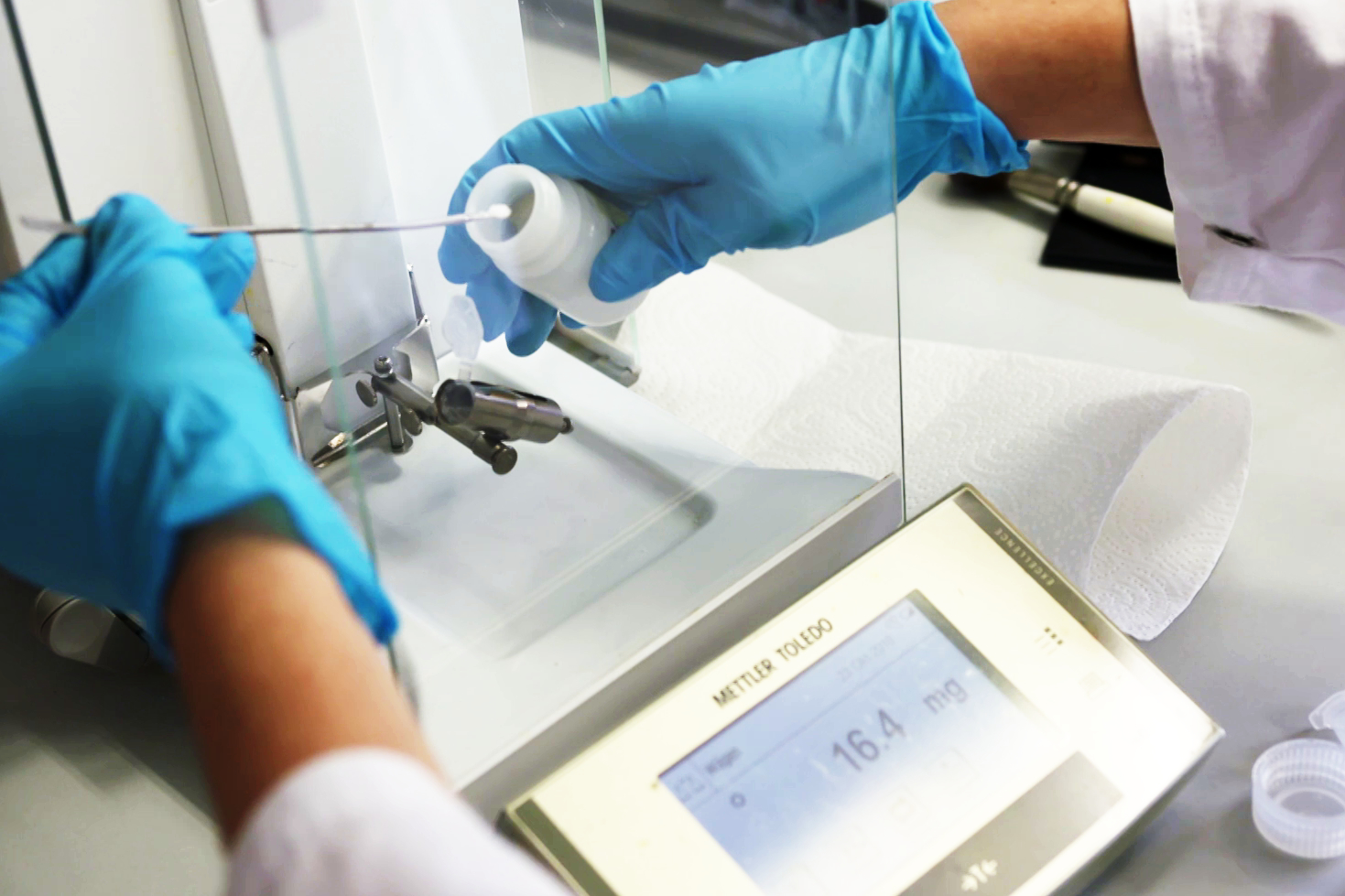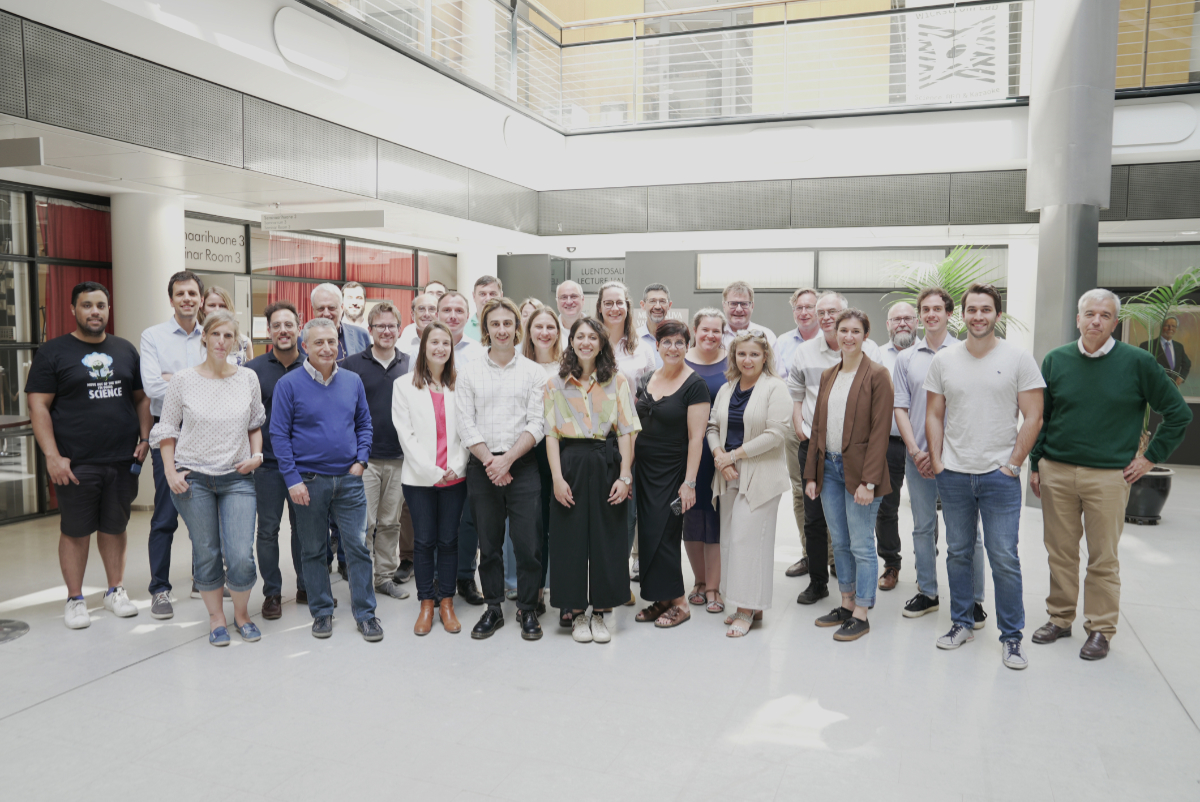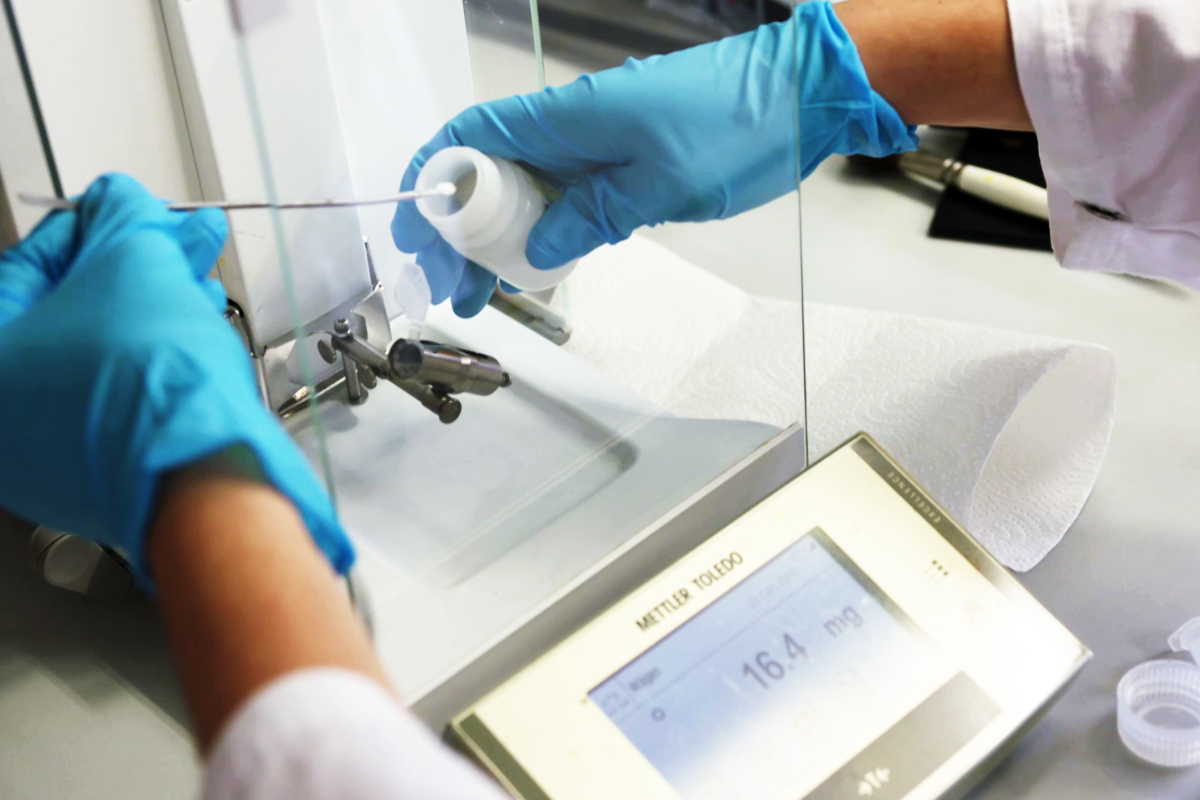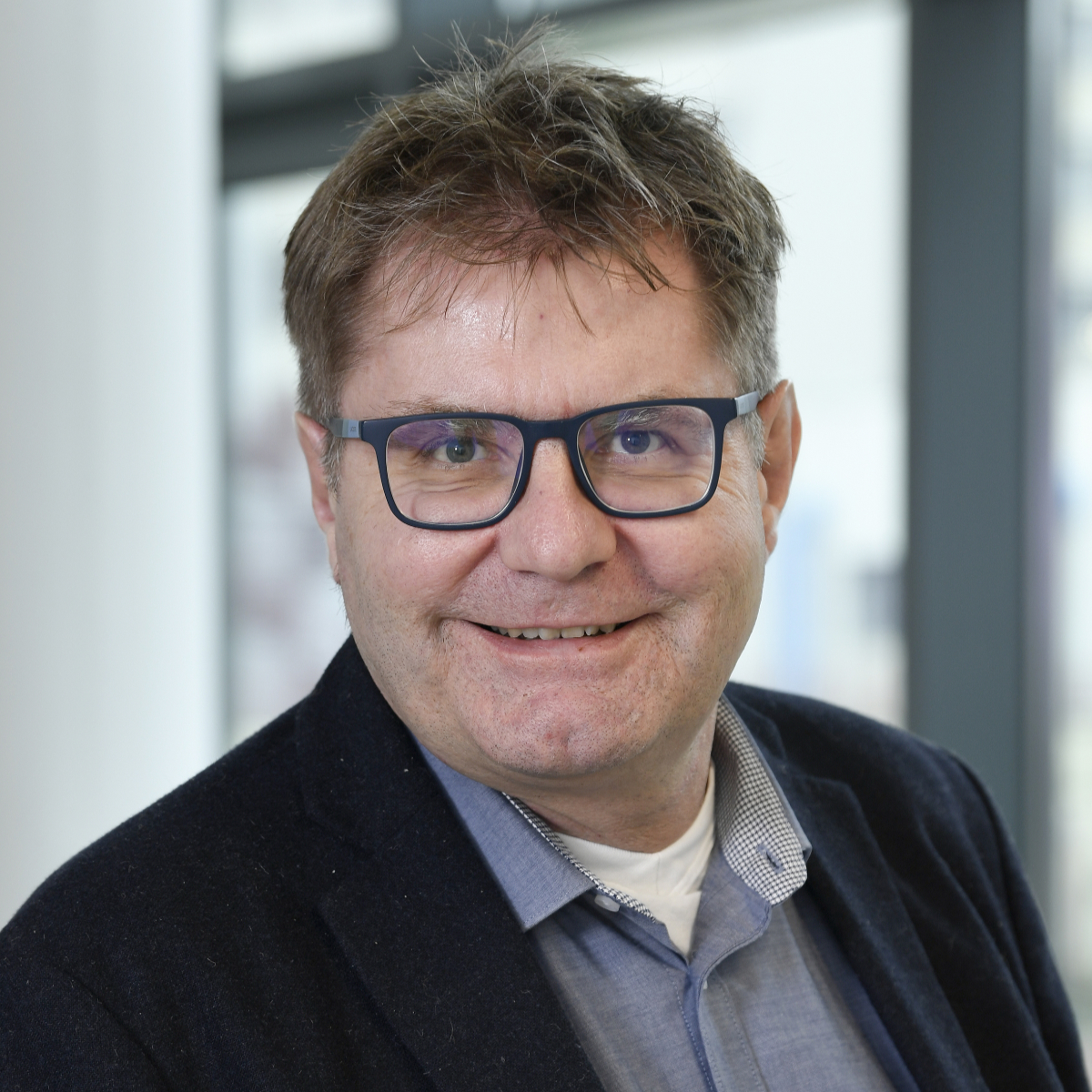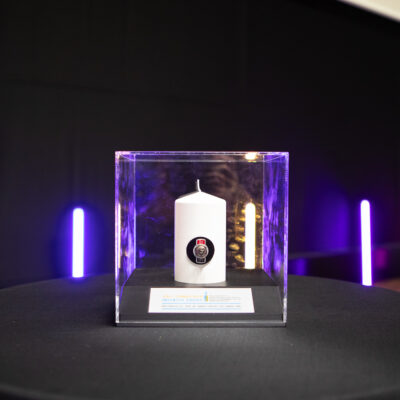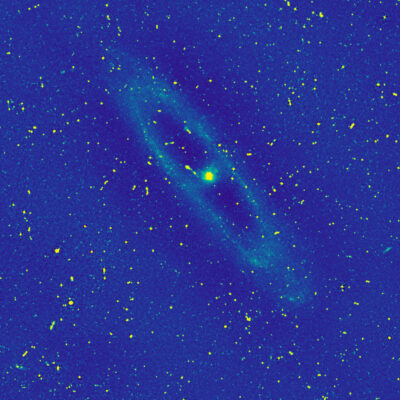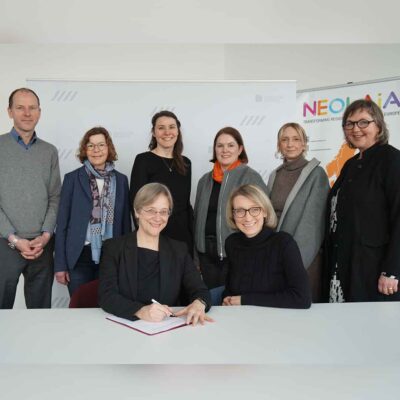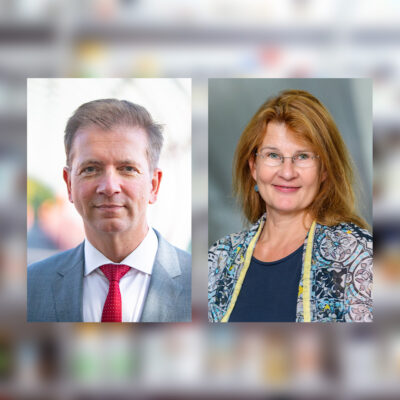Um Tumore zu behandeln, setzen Ärzt*innen hauptsächlich Operationen, Strahlen- und Chemotherapie ein. Das Promotionsnetzwerk „Magicbullet::Reloaded“ untersucht alternative Verfahren. 15 Doktorand*innen entwickeln spezielle Moleküle, die das Immunsystem anregen, Tumorzellen zu beseitigen. Wie die Promovierenden von dem Netzwerk profitieren, darum geht es in einem neuen Videobeitrag.
Doktorand*innen aus der organischen und medizinischen Chemie, Tumorbiologie und Pharmakologie forschen bis 2024 forschen in dem Netzwerk. Neun Universitäten, zwei Forschungsinstitute und vier Pharmaunternehmen in Deutschland, Schweiz, Großbritannien, Finnland, Italien, und Ungarn bilden sie in dem Verbund aus und werden dabei unterstützt von weiteren vier Firmen. Der Chemiker Professor Dr. Norbert Sewald von der Universität Bielefeld koordiniert den Forschungsverbund. Die Europäische Union fördert das Netzwerk mit rund vier Millionen Euro.
I am a curious person and I like challenges.
Having a group that can support each other and having different labs, and everybody’s willing to help, this is amazing.
Almost everyone has a personal relationship to cancer.
Everyone has someone in their family, or maybe a friend, or maybe a relative that has struggled with cancer.
The research we do here with Magic Bullet—maybe has the chance to have someone, like, down the line in the future,
even if it’s a slim chance.
I think, that’s sort of what motivates me the most.
Magic Bullet Reloaded is, in fact, the second edition of a European training network. It is devoted to the targeted delivery of antitumor agents to avoid side effects in tumor therapy: It is an European graduate school
bringing together scientists from chemistry and biology from all over Europe. And the PhD students will also spend some time in other places to learn other techniques. I hope that we will improve with what we are synthetizing and also researching, that the patient can overcome the problems of the chemotherapy. So to have anti-cancer drugs that are selective and that can avoid the collateral damages of the normal chemotherapy and also the psychological situation for the patient. This is our training network and this is the aim of the network: to help each other with our expertise. But also because there is a direct collaboration between chemists and biologists. This is really great because you can ask what you think about this test or what is better. So it’s really helpful. You have 15 PhD students in total and you have like a lot of different labs from all over Europe. Magicbullet::reloaded is an excellent example for European funded science and unified Europe is, from my point of view, also a major benefit for politics, economy, but also for science.
Changing laboratory is also changing perspective. And so this can trigger some ideas in you and then it can help your project.
So I think getting out of your comfort zone and like learning new things and adapting to a new research environment and meeting new people and then exchanging new ideas
are quite important.
And in this network you receive a lot of training, courses, conferences like really prepare you to continue and be a good scientist.
We got different type of training for different aspects.
That was important because doing research is not only doing it in the lab, but it’s important also to communicate that and so we got training in how to write a paper or in how to address our research to the public.
The best aspect of having this network is the support of like 20 or 30 people behind you, which feels really nice.
And I mean research ist tough and this network is like a family.
So whenever you have a problem there are always people coming in for helping you and that was super cool.
It’s really a nice team.
We are really a group.
Für die Entwicklung zielgenauer, schonender Krebsmedikamente verknüpfen die Forschenden in Magicbullet::Reloaded einen tumorschädlichen Wirkstoff mit einem Transportermolekül. Bei diesem Träger kann es sich zum Beispiel um ein Peptid, ein kleines Eiweißmolekül, handeln. Dieser Träger erkennt Moleküle, die typisch sind für Tumorzellen, verbindet sich mit ihnen und gibt den Wirkstoff ab. Die Wirkstoffe regen dann zum Beispiel die Immunantwort in den Tumorzellen an. So sorgen sie dafür, die Resistenz gegen Immuntherapien zu überwinden, die die krankhaften Zellen beseitigen sollen. „Die Antitumor-Wirkstoffe haben gewissermaßen einen Adressaufkleber, der mitteilt, an welche Zellen sie ausgeliefert werden sollen“, sagt Norbert Sewald. Medikamente, die auf diese Art funktionieren, könnten die frühe Vision des Nobelpreisträgers Paul Ehrlich (1854-1915) erfüllen, sagt der Chemiker. Ehrlich prägte den Begriff „Zauberkugeln“ für treffsichere Wirkstoffe.
Zu den Universitäten in dem Konsortium von Magicbullet::Reloaded gehören außer der Universität Bielefeld: die Eötvös Loránd-Universität Budapest (ELTE) in Ungarn, die ETH Zürich (Schweiz), Newcastle University (Großbritannien), die Technische Universität Darmstadt, die Universität Helsinki (Finnland), die Universität Insubrien (Italien), die Universität Mailand (Italien) und die Universität zu Köln.
Gefördert wird Magicbullet::Reloaded seit 2019 als Marie Skłodowska-Curie Innovative Training Network (Innovatives Ausbildungsnetzwerk für den wissenschaftlichen Nachwuchs, ITN) mit rund vier Millionen Euro durch das EU-Rahmenprogramm für Forschung und Innovation, Förderziffer: 861316. Das Netzwerk baut auf der Forschung des ebenfalls von Norbert Sewald koordinierten ITN „Magicbullet“ auf, das von 2015 bis 2018 lief.
